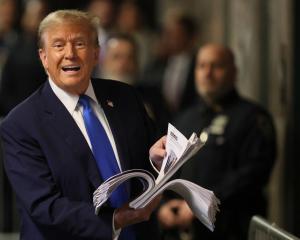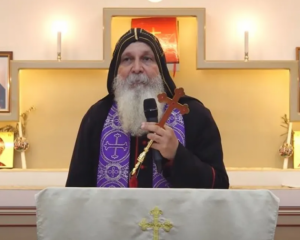After hours of tense face-offs, with police showing relative restraint at first, hundreds of riot police baton-charged the crowds with shields, pepper spraying and wrestling a string of protesters to the ground in chaotic scenes.
Several bands comprised of hundreds of protesters, some of whom pelted police with eggs and bottled water, retreated but regrouped swiftly in other spots, stoked on rather than cowed by the clampdown.
Many rushed to lay fresh barricades across roads amid a wail of sirens and loud chants for "real full democracy".
The fresh tensions will be a set-back for authorities who have struggled for months to find a resolution to the most serious governance crisis to be faced in the former British colony since it returned to Chinese rule in 1997.
The protests have simmered for three consecutive nights in Mong Kok since police staged a swift and surprisingly smooth clearance of the area's protest encampment on Wednesday, arresting more than a hundred people including key student leaders Joshua Wong and Lester Shum.
Amnesty International on Friday, however, warned the police against the use of excessive force after Wong and Shum both said they were beaten during their arrests. Several reporters were also roughed up, prompting the Hong Kong Journalists Association to lodge a formal complaint and plan a protest.
"Is there a need to really use so much force to beat us," said Wong Ching-san, a young protester wearing a black jacket and flip flops. "We're not trying to cause violence but when they attack us we fight back."
A pro-democracy lawmaker on the ground during the chaos in Mong Kok, Leung Yiu-chung, was scathing at the lack of restraint and violence displayed by some frontline officers.
"Some of them were deliberately inciting people," he said.
Friday marks two months since police first fired tear gas to disperse demonstrators from the main protest site in the Admiralty district next to government offices in the heart of the Asian financial centre.
The protests, which have lasted well beyond many people's expectations, drew more than 100,000 on to the streets of Hong Kong at the peak. While numbers have dwindled, they have swelled to several thousand at weekends and at key moments given a deep-rooted frustration at China and Hong Kong's refusal to in any way offer to meet their democratic demands.
A police spokesman said on Friday officers were worried about reports of excessive force and they would investigate.
Lined with jewellery and electronics shops, and grimy tenement blocks, bustling Mong Kok has been a key battleground for protesters and mobs intent on disbanding them.
The protesters, mostly students, are demanding full democracy. They have called on the city's embattled leader, Leung Chun-ying, to step down after Beijing in August ruled out free elections for Hong Kong's next leader in 2017, despite constitutional promises made by China to allow eventual universal suffrage in the city of 7.3 million.
In one tense skirmish early on Saturday morning, around a hundred activists trapped four traffic policeman, one bleeding in the face, demanding they release an activist they'd pinned to the ground. The police lashed out with batons to keep back the crowds for around 10 minutes until re-enforcements arrived.
China rules Hong Kong under a "one country, two systems" formula that accords the former British colony a degree of autonomy and freedoms not enjoyed in mainland China, with universal suffrage set as an eventual goal.












